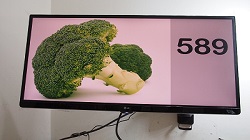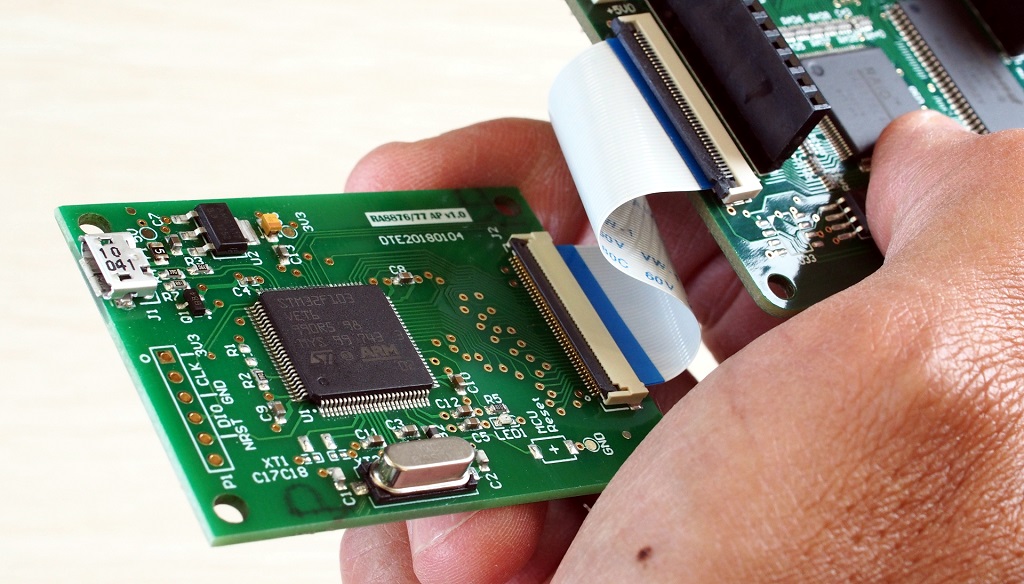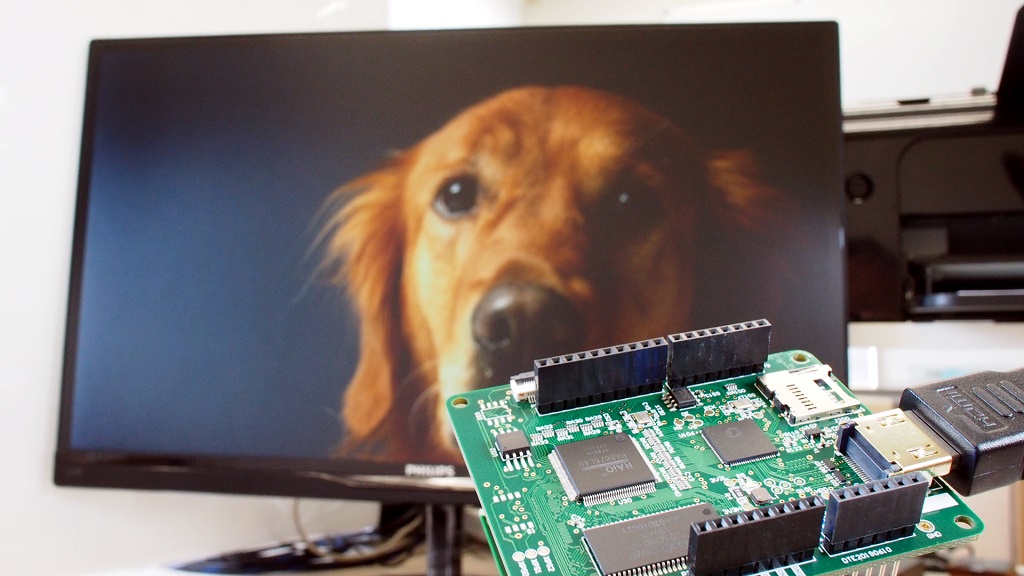| HDMI
Shield is an Arduino compatible
development board to bridge the gap |
| between small MCUs
and High Definition Televisions (HDTV). |
|
Small MCUs prevalent in
prototyping systems like
Arduino
or
mbed
cannot |
|
output
high-bandwidth video signal for HDTVs. |
|
HDMI Shield do it in two steps: |
|
(1) use an external LCD controller (RA8876)
to generate RGB video signal. |
|
RA8876 supports multiple display buffers,
picture-in-picture, 2D
BitBlit engine, |
|
DMA
transfer for
images preloaded in Serial Flash, and
font rendering from |
|
embedded character ROM. |
|
RA8876 releases the burden of pixel-by-pixel
drawing from a MCU. |
|
The full TV frame is updated instantly with
only few SPI commands. |
| |
|
(2) RGB video generated by RA8876 is fed to
a
HDMI encoder
CH7035B. With |
|
its advanced scaling engine this chip boosts RGB signal in 8:8:8 to
TMDS |
|
signal up to 1920*1080 @ 60Hz (1080p)
output through HDMI/DVI interface. |
|
|
|
HDMI shield in YouTube (link) |
|
 |
| | | |
Application for a Ticket Display System.
Full description and source code
in
GitHub
(Ra8876_ticketdisplay_part1) |
|
 |
|
Board features: |
|
* Shield compatible with Arduino form factor
for 3.3V systems |
| * LCD
controller RA8876 generates RGB in
8:8:8 up to 1366*768 |
|
* HDMI encoder CH7035B with an advanced
scaling engine to support |
|
1080p@60Hz HDMI/DVI output |
|
* Compatible with SPI, 8080,
& 6800
interface with SPI as default for Arduino |
| * Onboard 256Mbit SDRAM
for frame buffer
equivalent to storage of more |
|
than 17 frames in 1280*720*16bit resolution |
| * HDMI
Type A socket for direct connection to any
HDTV or monitors |
|
*
128Mbit Serial Flash (25Q128JVSQ) stores
more than 7 pages of graphic |
|
assets in binary format,
with single instruction to display images by
DMA |
|
* Include a STM32F103VET6 driver board with
firmware preloaded for |
|
AP Software tool. This tool is used to control RA8876
and download image data to 128Mbit Serial
Flash with a PC. But it is not restricted to
use stm32. |
 |
Connect
the boards with 5cm 40pins FPC cable.
(Click thumb image to enlarge) |
|
Displaying
on a 1080p HDMI monitor below |
 |
Component used:
(1) HDMI Shield dev. board v2
(2) STM32F103VET6 driver board
(click thumb image to enlarge) |
|
* Arduino library fully tested on ESP8266,
ESP32, DUE, Arduino M0, |
|
Intel
Genuino 101, and Teensy
3.2/3.5 |
|
|
| |
|
|

